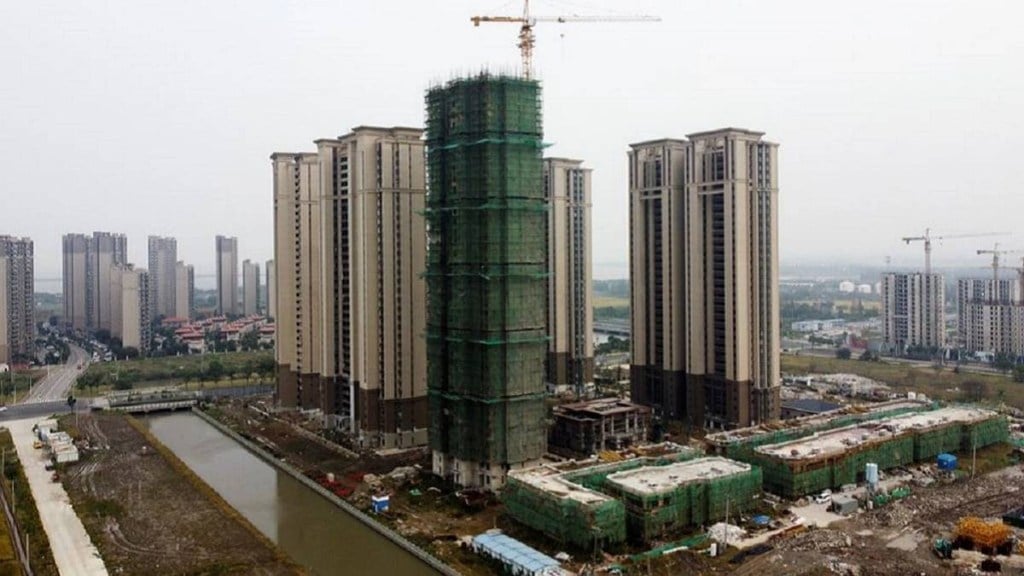By Rajesh Kabra
Digitisation & AI is one of the most discussed topics in the real estate industry these days. It aims at increasing the efficiency of existing processes and in some ways, this is a breakthrough. In this fast-changing digital world, it has never been more dangerous for companies to neglect the importance of accepting new technologies and the real estate industry is no exception. All property and real estate developers are now embracing digital technology as it has enabled them to serve their customers better and offer efficient services and infrastructure availability.
Here are a few ways how technologies are transforming the housing infrastructure industry:
Smart Parking Solutions
Due to the increase in two- and four-wheeler ownership, fewer parking spaces are available in our cities every day, which causes severe traffic congestion. As a result, many of us increase the journey time by 20 to 30 minutes only to find parking close to our destinations. Sadly, this issue has started to surface in neighbourhoods as well. Parking spaces are typically arranged in residential communities based on the number of homes or apartments. The shortage of parking spaces in residential neighbourhoods will only get worse soon. Instead of adding extra parking spaces (which would be detrimental to the infrastructure plan), we need to effectively manage the ones that are already there. This is now achievable with the use of smart parking solutions like an app, RFID, and IoT technology, thanks to the companies in the parking technology industry.
IoT is accelerating the adoption of newly developed and innovative technologies in the transportation sector, particularly in light of its role in the integration of automated and smart parking solutions. Utilizing these solutions has proven advantageous in the modern era as auto parking technology adoption has provided customers with connected systems allowing drivers to view and use it comfortably on their cellphones. IoT has made it possible to remotely open and close car doors, find empty parking places, and set directions utilising roadside assistance. IoTs that are fully functional and focused on all elements of data flow, including collection, visualisation, processing, and storage, may now collect enormous amounts of data thanks to developing technology, such as intelligent parking systems.
Innovative construction:
The current state of the global economy is on the cusp of a new industrial revolution, one that will emphasise the use of digital and internet technology to enable the creation of fully automated production processes. The demand and desire for ease and flexibility in operation and control of functions such as heating, lighting and access control systems for business endeavors, builders, security, hotels, hospitals, residential homes and offices are scaling new heights on an exponential basis.
The ideas of the Internet of Things (IoT), Cyber Physical System (CPS), Information and Communications Technology (ICT), Enterprise Architecture (EA), and Enterprise Integration are all intimately tied to the term “Industry 4.0.” (EI). Due to its favourable effects on production and efficiency, automation has been steadily rising as the industry transitions to Industry 4.0. Scale customization is the main focus of digitization, which also increases the productivity and adaptability of manufacturing. In order to increase productivity, output, and growth as well as to produce better and more intelligent goods, wire and cable companies must adopt Industry 4.0.
LS0H wires are technologically revolutionary products in the wires & cables segment as they emit lesser smoke and odour when compared to other wires. Low smoke, zero halogen compounds not only provide better fire prevention performance, but they have also been continuously improved, increasing the range of applications and performance. One of the biggest problems in real estate is time and expense overrun. By using drone surveys, 3D maps and models, extracting blueprints, and modelling project schedule optimizers that consider possibilities for project delivery and enhance overall project planning, AI enables “smart building.”
The author is Director, RR Parkon
Disclaimer: Views expressed are personal and do not reflect the official position or policy of Financial Express Online. Reproducing this content without permission is prohibited.
